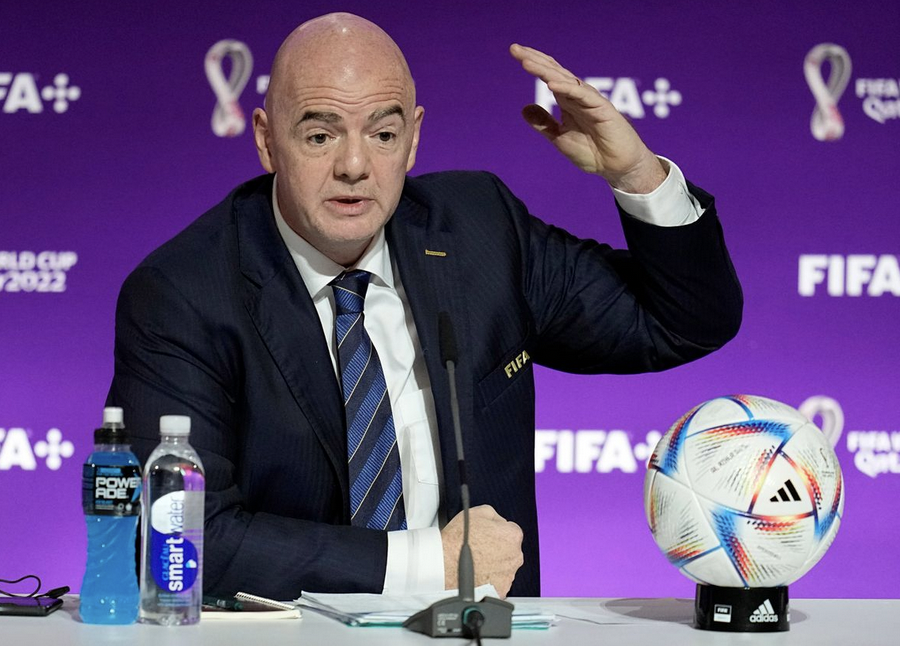
2026 World Cup – reform accountability & governance at FIFA?
STAGING the 2022 World Cup in Qatar (after having the previous one in Russia) is yet another confirmation that decision-making at FIFA still operates outside of any effective external mechanisms of accountability.
Despite happy talk of reform and leadership changes, FIFA remains impervious to any serious form of legal, fiscal, supervisory and peer accountability let alone worries about human rights, fan opinion or media questioning.
Impunity comes easily to FIFA executives safe in the knowledge that they can themselves effectively levy sanctions against any national and international governments or member federations brave enough to step out of line by daring to risk criticism or serious questions about their decision-making.
Even staging country governments willingly compromise their nascent power to hold FIFA to account – should they wish to exercise it symbolically or legally - as a function of the behind the scenes manoeuvres allegedly often required to emerge victorious from the auction to hold the event.
Given I was inspired to put pen to paper over a decade ago due to disgust at FIFA shenanigans about what good corporate governance looks like, I sincerely believe that corporate sponsors alone not only hold the key to any possibility of future FIFA reform. But, more importantly, that the final the 2026 World Cup staged in North America is the last chance to ever ensure greater transparency and accountability from FIFA.
Of course, it is intimidatingly hard to challenge any globally powerful sports bodies including FIFA. However, the sale of television and official sponsorship rights for the next 2026 World Cup (to be held in North America) represents the best chance for World Cup soccer to be played with FIFA as the football with greater accountability in future its real prize. When subject to US legislation, for the first time in its existence, FIFA may end up subject to external jurisdiction and systemic change.
Given FIFA’s existing governance structure means that its President Infantino and executive committee have no requirement/need to report to any higher authority – beyond very narrow matters of Swiss law because of their incorporation there – of any stripe. FIFA has found itself to legal proceedings in a variety of jurisdictions over many years without any greater accountability resulting.
Yet in 2026, voluble US based sponsors and broadcast rights holders have a once in a lifetime chance to leverage the threat and power of existing US legislation to drive through change for greater accountability and much needed corporate governance reform at FIFA.
It is well-worth remembering that the International Olympic Committee acted with similar impunity to FIFA until they fell foul of variety of stringent US laws that motivated them to change. With fifty-six per cent (56%) of FIFA’s 2022 revenue budget of $4.7bn already coming from the sale of broadcast rights, sheer weight of money means sponsors (not fans) hold the balance of power like never before. Only on US soil can they can shift FIFA towards reform and much needed renewal. If sponsor corporations and broadcast rights holders unite to pressure FIFA – particularly (as with the IOC) if they ally with attention/election seeking politicians – together they all present a potent, legally lethal combination under the jurisdiction of existing US legislation. Especially if – between then and now – they are presented with further or ongoing FIFA corporate governance shortcomings and scandals.
Given World Cup sponsors and rights holders have a proven track record of looking the other way during tournament, why does staging the World Cup in North America represent such a severe strategic threat to FIFA?
In a nutshell, unlike in Russia or Qatar, in the USA FIFA will be subject to investigation, question and disclosure obligations as well as legal requirements for fair-dealing, greater transparency under a wide variety of relevant existing US laws. Mr. Infantino is definitely dazed and confused if he thinks the song remains the same for FIFA at the next World Cup in North America. When – not if – the sponsors give no quarter, there won’t be a whole lot of love for FIFA let alone forgiveness for its particular brand of scandal, high-handed anti-competitive behaviour, backroom deals and opaque governance.
Notes
^ It had been suggested to me that I should write about the job of the Independent Director because of the diversity of my experience. What triggered me to do it was the media reporting of the many alleged scandals around FIFA. As a lifelong supporter of the wonderful game (and ex-referee) it seemed to me that those running FIFA really had a lot to learn about board effectiveness when it came to overseeing world football and especially the World Cup.
References:
'How Can FIFA be held accountable?' Roger Pielke Jr.
Sport Management Review, 16, pp.255-267
Photo credit: Sky News
